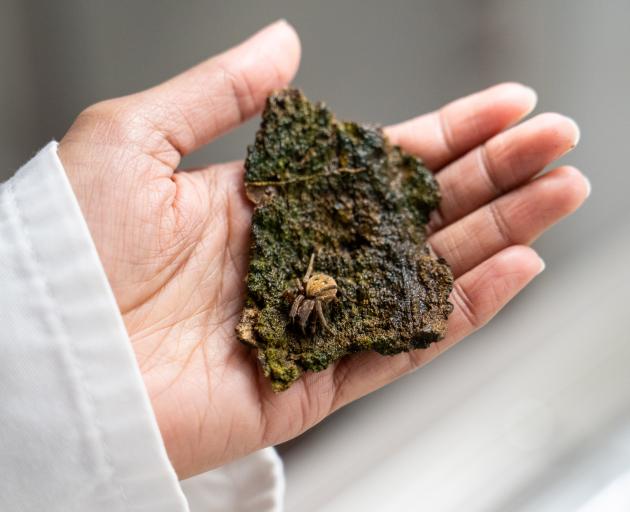Science
Parasitic Worms Transform New Zealand Spiders into “Zombies”

A fascinating yet alarming ecological phenomenon is unfolding in New Zealand, where parasitic worms known as mermithids are turning spiders into “zombies.” PhD student Usha Mendis at Lincoln University is investigating how these nematodes infect various invertebrates, including spiders, and the potential consequences for the local ecosystem.
Mendis has identified three distinct types of spiders infected by these parasites. She emphasizes the critical role that spiders play in biodiversity, noting that over 90% of New Zealand’s spider species are endemic. “If something were to happen to them, it would not be good for our biodiversity,” Mendis said. The presence of mermithids alters the spiders’ roles in the food chain, leading to significant ecological repercussions.
The process by which these nematodes infect their hosts is both gradual and lethal. Infected spiders exhibit abnormal physical changes; their legs may become shorter yet thicker, and their abdomens swell. “They look like zombies,” Mendis remarked, highlighting the visible transformations the spiders undergo. However, the only definitive indicator of an infection is the emergence of the nematode after the spider’s death.
While researchers understand how the nematodes exit the host, the entry process remains unclear. Mendis is dedicated to uncovering this mystery, aiming to understand the full life cycle of the mermithids. “They can’t live without a host. They consume the energy and nutrients of the host and grow inside it,” she explained.
The nematodes require moisture to progress in their life cycle, compelling the infected spiders to seek out wet environments. This behaviour often leads to their demise, as many are found drowned. Even if a spider survives the nematode’s emergence, it will face a grim fate shortly thereafter. Mendis is utilizing water traps to collect nematodes, furthering her research.
Mermithids were first documented in New Zealand only 35 years ago, indicating that our understanding of their impact on the ecosystem is still in its infancy. Mendis urges the public to rethink their perception of spiders, stressing their crucial role in the environment. “Spiders may look disruptive and creepy, but they’re not the enemy. They’ve got their own problems to deal with,” she said.
As Mendis continues her research, the insights gained will be vital for understanding the broader implications of parasitic infections on biodiversity and ecosystem health. The delicate balance of nature in New Zealand hinges on the well-being of its endemic spider species, and the ongoing study of mermithids will shed light on this complex relationship.
-

 World6 days ago
World6 days agoPrivate Funeral Held for Dean Field and His Three Children
-

 Top Stories1 week ago
Top Stories1 week agoFuneral Planned for Field Siblings After Tragic House Fire
-

 Sports3 months ago
Sports3 months agoNetball New Zealand Stands Down Dame Noeline Taurua for Series
-

 Entertainment3 months ago
Entertainment3 months agoTributes Pour In for Lachlan Rofe, Reality Star, Dead at 47
-

 Entertainment2 months ago
Entertainment2 months agoNew ‘Maverick’ Chaser Joins Beat the Chasers Season Finale
-

 Sports3 months ago
Sports3 months agoSilver Ferns Legend Laura Langman Criticizes Team’s Attitude
-

 Sports4 weeks ago
Sports4 weeks agoEli Katoa Rushed to Hospital After Sideline Incident During Match
-

 Politics2 months ago
Politics2 months agoNetball NZ Calls for Respect Amid Dame Taurua’s Standoff
-

 World2 weeks ago
World2 weeks agoInvestigation Underway in Tragic Sanson House Fire Involving Family
-

 Entertainment3 months ago
Entertainment3 months agoKhloe Kardashian Embraces Innovative Stem Cell Therapy in Mexico
-

 Sports4 weeks ago
Sports4 weeks agoJamie Melham Triumphs Over Husband Ben in Melbourne Cup Victory
-

 World4 months ago
World4 months agoPolice Arrest Multiple Individuals During Funeral for Zain Taikato-Fox




















